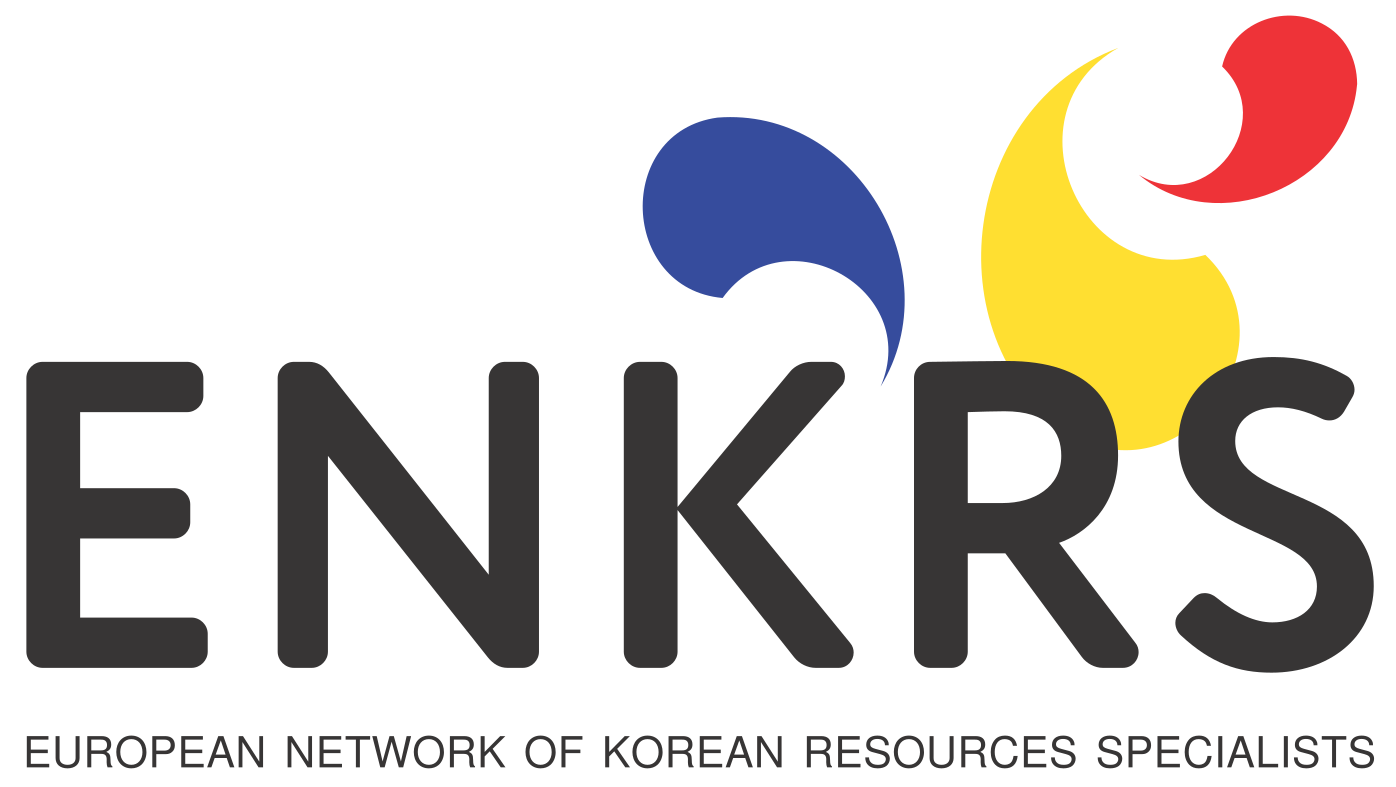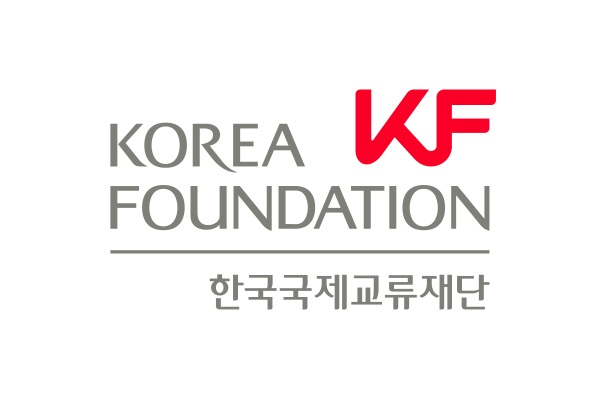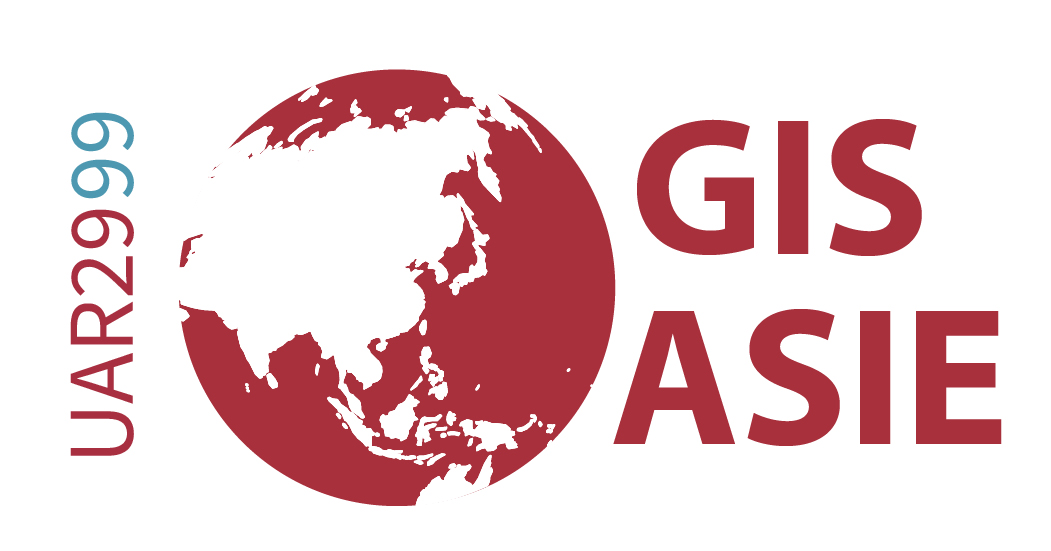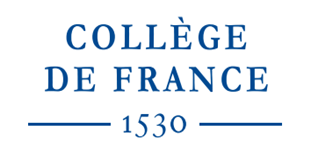European Network of Korean Resources Specialists
Réseau européen des spécialistes des ressources coréennes
The 2024 KF-ENKRS network workshop:
Unlocking Korean Collections to the World:
Digitization, Research and Teaching Support
Ouvrir les collections coréennes au monde:
numérisation, recherche et soutien à l’enseignement
Collège de France
11 place Marcelin Berthelot
75005 Paris, France
16-18th of May, 2024
Program
Thursday 16 May
Room Glowinski & Room 5 |
|
| 09:00-09:30 |
Walk-in and Registration. Coffee and Tea provided. During check-in you can pick up your badge and tote bag, join the other members for coffee and tea and wait for sessions to start. IMPORTANT: please do not bring suitcases and big bags to the conference site. We cannot accommodate these due to security reasons. Please go to your hotel first and ask the staff to keep them in storage for you until you can check into your room. |
| 09:30-10:15 |
Opening of the Conference. Words of Welcome
|
| 10:15-10:45 |
Round of Introductions: ENKRS Members Following up on a point of feedback from last year, in order to welcome the new members as well as refresh our memory from last year, we would like to do a quick round of introductions before we start with the sessions. |
| 10:45-11:15 |
Session 1: Member Presentation
SUCIU, Marian (Traian Brad Branch of Octavian Goga, Cluj County Library, Romania) |
| 11:15-11:30 | Coffee and Tea Break |
| 11:30-12:30 |
Session 2: Member Presentation
QUISEFIT, Laurent (BULAC Library, Paris, France) Collin de Plancy (1853-1922) was France's first diplomatic representative in Korea. After a long career in China, he was appointed French Consul General and Chargé d'Affaires in Seoul in 1888. He stayed there until 1890; on his return, he donated more than 600 books and documents to the Bibliothèque de l'Ecole des Langues Orientales, of which BULAC is the heir. The works donated by Collin de Plancy, from his personal collection, cover all fields of knowledge. They formed the basis of Maurice Courant's work when he undertook, on Collin's advice, to compile the Korean bibliography. Highlights of the collection include popular Korean novels published in the capital, language manuals and uigwe (ceremonial protocols). Some of these documents have been digitized through partnerships and are now freely available on the library's website.
RILEY, Ha Yea (Hannie) (University of Oxford, Wycliffe Hall, United Kingdom) This presentation is to examine a book called Terminations of the verb Hata which is currently housed in the Bodleian Library, University of Oxford, and is freely available in a digitized image format to the public through the University of Oxford’s own library discovery tool called SOLO. Originally however, this monograph had not been known to the public until 2011. Terminations of the verb Hata, which was published in 1896, was first introduced to the public in 2011 through a book called Korean Treasures: Rare Books, Manuscripts and Artifacts in the Bodleian Libraries and Museums of Oxford University by Min Chung. This book was published by the Bodleian Libraries with funds supplied by the Cultural Heritage Administration of the Republic of Korea. It introduced Terminations of the verb Hata very briefly as a part of the Rutt Collection which was donated to the University in 2008 by Monsignor Richard Rutt, stating that this book was the only known extant copy in the world. It is not only the unicity of the book that makes interesting but also the fact that it does not contain any information about its publishing responsibility. In addition, as it states on the front cover of the book, it was published ‘for private circulation only’. Also the subtitle, ‘with occasional references to some of the verbal terminations used in Lumen’ adds more mystery to this book as no further explanation about the identity of ‘Lumen’. The Bodleian Library digitized the whole book and made it available online from 2014. Therefore this presentation about this book is to unfold the secret behind this book’s publication, background and purpose, as well as publishing responsibility for the first known book on a Korean verb ending conjugation use. |
| 12:30-14:00 | Lunch Break |
| 14:00-15:30 |
Session 3: Guest presenter Presentation and Roundtable Debate
KANG, Mikyung (Harvard-Yenching Library, Harvard University, United States of America) Since 2007, Harvard-Yenching Library has been digitizing the Korean Rare Book Collection and North Korean Propaganda Poster Collection. Often, the Library acquired digitized materials if no physical copies available to acquire, such as North Korean newspapers in PDF and text datasets and digital photo collections. This presentation will illustrate the current status of off-line digital resources through acquisitions and online digital resources through in-house digitization projects of the Korean Collection at Harvard-Yenching Library.
Roundtable: Digitization and Korean Studies Librarianship: Unlocking Korean Collections to the World |
| 15:30-16:00 | Coffee and Tea Break |
| 16:00-17:00 |
Session 4: Member Presentation
DANEŠOVÁ, Veronika (Library of the Oriental Institute Czech Academy of Sciences) The Korean Library of the Czech Academy of Sciences was founded in 1958 with the donation of several hundred books and periodicals by the Academy of Sciences of the Democratic People's Republic of Korea. Most of these books were published in the 1950s, especially after the Korean War. Among the most valuable and unique titles are Kim Il-chul's Choson minsok tchalnori jongu (Studies on Korean Masks, 1958), Chosondji, a Korean translation of the 1900 Russian treatise Opisaniye Korei. Further, An Ham-gwang's literature textbook documents the change in the evaluation of literature that had taken place in North Korea since the 1950s, and the nearly complete collection of the newspaper Nodong sinmum. In 1996 and 1997, our collection received generous gifts made by the Korean Foundation of South Korean publications. The presentation shall introduce the collection in more detail, highlight how its development was influenced by the changes in the international relations of our region, as well as point out the obstacles faced by most Post-Communist countries in management and further development of such collections.
HU, Jing (Staatsbibliothek zu Berlin, Berlin State Library, Germany) The presentation will offer a snapshot of the access to Korean databases in Europe and explore optimal solutions for enhancing the framework for Korean e-resources. I will focus on the service model of CrossAsia, managed by the Berlin State Library, and discuss how CrossAsia delivers e-resource services to libraries outside of Germany. Additionally, the discussion will concentrate on how to improve access to Korean e-resources for dispersed scholars of Korean Studies in Europe. |
| 17:00-18:00 | Reception & Meeting with Members |
| 18:00-19:00 | Break (freshen up / move to dinner location) |
| 19:00-21:00 |
Dinner sponsored by The Korea Foundation |
Friday 17 MayRoom Glowinski & Room 5 |
|
| 09:00-9:30 | Walk-in, Coffee and Tea |
| 09:30-10:00 |
Session 5: Cataloging Korean Collections: Troubleshoot, Updates, Questions A chance for cataloguers to meet up, ask questions, update each other on new practices, and share their knowledge with other colleagues. This session is optional for those not directly responsible for cataloging materials. |
| 10:00-10:30 |
Session 6: Member Presentation
Nadia KREEFT-MISHKOVSKYI (Asian Library, Leiden University Libraries) Starting out at a Subject Librarian for Japanese and Korean Studies at 24 with no experience, no knowledge of Korean, and way too much youthful optimism, I did not hesitate to say ‘yes’ when approached 3 months into my new job about the possibility of digitizing a large collection of North Korean propaganda posters privately held by collector Willem van der Bijl. Wading into the territory of digitization issues, personnel rotations, copyright problems, technical limitations and sky-high ambitions for an interactive website, this project is now officially in its 12th year - yes, as long as my employment! - and finally the end seems in sight. I learned many things over the course of the years about the do’s and don’ts of undertaking such a project, and hope to share this with my colleagues. |
| 10:30-11:00 | Coffee & Tea Break |
| 11:00-12:30 |
Session 6 (continued): Guest Presenter and Roundtable Debate
KIM, Ellie (Mãnoa Library, University of Hawai‘i) The North Korea Collection Project of University of Hawaii at Manoa Library is currently in the final stages. These materials can be a key to understanding North Korea and North Koreans. The scale of UHM library’s North Korea Collection shows the history of our institution that has been intensively researching and collecting the NK materials for decades. The content of the publications can be regarded as an essential primary source for North Korean studies. Considering extremely limited information from the country, this is a rare opportunity to get information from North Korea's insiders and might be a little hint to understand their society and culture. Besides the importance of the contents, North Korean publications can be considered rare materials. Since North Korea is a closed country and there is an economic sanction against them, we cannot freely order books from there or communicate with publishers and vendors of North Korea. In this presentation I would like to share our experience on developing the North Korean Collection and digitization of the collection and the challenges and outcomes we faced during the project.
Roundtable on Korean Collections and Teaching & Research Support |
| 12:30-14:00 |
Lunch Break
Room change: Room Glowinski & Room 2 |
| 14:00-15:30 |
Session 7: Vendor Presentations
|
| 15:30-16:00 | Coffee and Tea Break |
| 16:00-16:30 |
Session 8: Presentation by the National Library of Korea
PARK, Soyoung (National Library of Korea, Seoul). |
| 16:30-17:30 | Tour at Collège de France |
| 19:00 - | Free Time Dinner for Members, Board Meeting |
Saturday 18 May
Venue change: |
|
| 09:00-09:30 | Walk-in, Coffee and Tea |
| 09:30-10:30 |
Session 9:ENKRS General Assembly (Members only) Nadia KREEFT-MISHKOVSKYI (ENKRS Chair) |
| 10:30-11:00 | Coffee and Tea Break |
| 11:00-12:00 |
Session 10: Visiting the Pôle Mondes Asiatiques (PoMA) through its Library of Korean Studies PoMA has a large Reading Room which welcomes researchers from the five Libraries of Chinese, Indian and Central Asian, Japanese, Korean, and Tibetan Studies. The Collection of the Korean Studies began with the Korean works of Pr. Charles Haguenauer in 1959 and has been enriched by the holdings bequeathed by Daniel Bouchez and Marc Orange. The Library houses the Maurice Courant’s Korean Heritage Collection.
Presentation of the Korean Part of the “James Albert Kemp Collection of Far Eastern and South-East Asian Amulets and Talismans”, to be Housed on a New Database of the Research Centre of East Asian Civilisations (CRCAO) |
| 12:00-12:30 |
Closing Addresses
|
Generously supported by:
The Korea Foundation, GIS Asie- French Academic Network on Asian Studies,
Centre national de la recherche scientifique, and Collège de France




